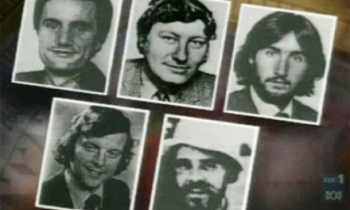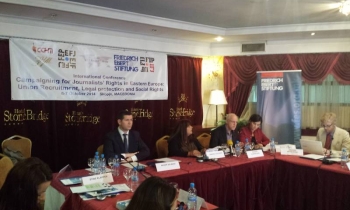Jordan’s lower house of parliament Wednesday voted to endorse writing off a controversial clause whoch provided for imprisonment of journalists in the new press and printing draft law, acording to news reports.

The chamber approved the clause 10 days ago, sparking a wave of protests throughout the country which involved charges that the lawmakers were succumbing to the will of the government, the Deutsche Press-Agentur (DPA) reported.
But the upper house, apparently responding to public opinion pressures, decided to reject the clause and returned the draft to the lower house, the House of Representatives, which revoked its earlier stand.
The official Petra news agency reported that the lawmakers voted in favour of dropping the provision permitting up to three years imprisonment for acts such as slander and religious defamation. The law, which was approved earlier this month, initially slapped heavy fines and prison terms on journalists for those violations.
Even though the parliament dropped the imprisonment provision, journalists will still face hefty penalties of up to 20,000 Jordanian dinars (US$28,200; €21,200) for violations including defaming religions protected under the constitution or offending religious prophets in writing or in drawings, the Associated Press (AP) reported.
Journalists can also be found guilty and fined if their writings are viewed as an insult to religious sentiments or as inciting sectarian strife and racism. The law also punishes journalists for slander of individuals and for spreading false information or rumors.
The cancelled clause allowed for the imprisonment of journalists in cases of violations relating to “degradation, defamation, vilification or abuse of religion†as well as “slandering or libelling of persons.â€

However, the upper house, the Senate, approved a new political parties’ law that raises the minimum number of party members to 500 in order to receive an official licence from the government.
The new legislation prompted 33 of the country’s 34 registered political parties to urge King Abdullah II to intervene so as to put an end to what they called a “state of siege†imposed on them in tandem by the cabinet and the House of Representatives.
In case the new draft law receives the consent of the monarch, most of Jordan’s political parties are expected to disappear from the scene at a time when preparations were under way for general elections later this year, observers said.
Except for the Islamic Action Front (IAF), which has 15 deputies in the 108-member lower house, almost all the rest of the lower house members of parliament were elected on the basis of regional and tribal affiliations.









